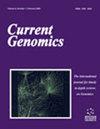解密经典霍奇金淋巴瘤的复杂基因:洞察力和有效策略
IF 1.4
4区 生物学
Q4 BIOCHEMISTRY & MOLECULAR BIOLOGY
引用次数: 0
摘要
:与其他癌症相比,由于霍奇金和里德-斯特恩伯格(HRS)肿瘤细胞罕见,且与主要的非恶性微环境共存,因此对经典霍奇金淋巴瘤(cHL)易感性遗传学的了解非常有限。本文通过最近的技术进步,对cHL的基因异常、核苷酸变异及其相关的靶基因进行了阐释。HRS细胞中的肿瘤基因组突显了这些细胞通过特定通路(如NF-kB)中亢进的信号转导及其与微环境细胞(如CD4+ T细胞)的相互作用而生存和增殖。相比之下,从全基因组关联研究和表达定量性状位点分析中发现的易感基因只是模糊地暗示了它们在更多癌症易感性中的潜在作用。为了给精准肿瘤学时代铺平道路,我们必须加大力度,采用以下策略:探索不同性别和cHL亚型的遗传异质性,研究与各类表达定量性状位点的共定位,以及利用单细胞分析。这些方法为揭示 cHL 遗传的复杂性提供了宝贵的视角。本文章由计算机程序翻译,如有差异,请以英文原文为准。
Deciphering the Genetic Complexity of Classical Hodgkin Lymphoma: Insights and Effective Strategies
: Understanding the genetics of susceptibility to classical Hodgkin lymphoma (cHL) is considerably limited compared to other cancers due to the rare Hodgkin and Reed-Sternberg (HRS) tumor cells, which coexist with the predominant non-malignant microenvironment. This article offers insights into genetic abnormalities in cHL, as well as nucleotide variants and their associated target genes, elucidated through recent technological advancements. Oncogenomes in HRS cells highlight the survival and proliferation of these cells through hyperactive signaling in specific pathways (e.g., NF-kB) and their interplay with microenvironmental cells (e.g., CD4+ T cells). In contrast, the susceptibility genes identified from genome-wide association studies and expression quantitative trait locus analyses only vaguely implicate their potential roles in susceptibility to more general cancers. To pave the way for the era of precision oncology, more intensive efforts are imperative, employing the following strategies: exploring genetic heterogeneity by gender and cHL subtype, investigating colocalization with various types of expression quantitative trait loci, and leveraging single-cell analysis. These approaches provide valuable perspectives for unraveling the genetic complexities of cHL.
求助全文
通过发布文献求助,成功后即可免费获取论文全文。
去求助
来源期刊

Current Genomics
生物-生化与分子生物学
CiteScore
5.20
自引率
0.00%
发文量
29
审稿时长
>0 weeks
期刊介绍:
Current Genomics is a peer-reviewed journal that provides essential reading about the latest and most important developments in genome science and related fields of research. Systems biology, systems modeling, machine learning, network inference, bioinformatics, computational biology, epigenetics, single cell genomics, extracellular vesicles, quantitative biology, and synthetic biology for the study of evolution, development, maintenance, aging and that of human health, human diseases, clinical genomics and precision medicine are topics of particular interest. The journal covers plant genomics. The journal will not consider articles dealing with breeding and livestock.
Current Genomics publishes three types of articles including:
i) Research papers from internationally-recognized experts reporting on new and original data generated at the genome scale level. Position papers dealing with new or challenging methodological approaches, whether experimental or mathematical, are greatly welcome in this section.
ii) Authoritative and comprehensive full-length or mini reviews from widely recognized experts, covering the latest developments in genome science and related fields of research such as systems biology, statistics and machine learning, quantitative biology, and precision medicine. Proposals for mini-hot topics (2-3 review papers) and full hot topics (6-8 review papers) guest edited by internationally-recognized experts are welcome in this section. Hot topic proposals should not contain original data and they should contain articles originating from at least 2 different countries.
iii) Opinion papers from internationally recognized experts addressing contemporary questions and issues in the field of genome science and systems biology and basic and clinical research practices.
 求助内容:
求助内容: 应助结果提醒方式:
应助结果提醒方式:


